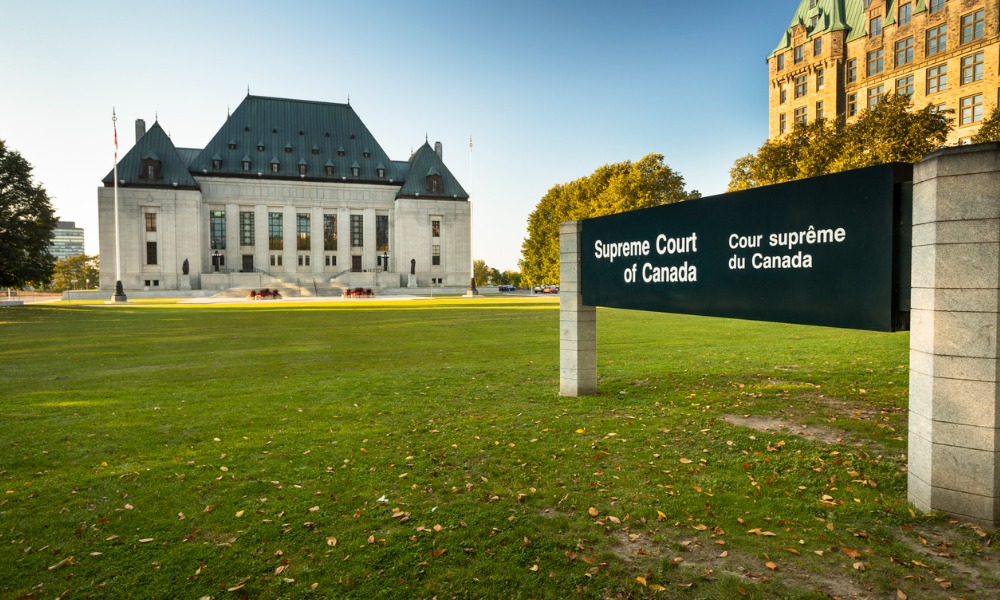
Federal Court of Appeal tackles matters involving income tax, labour law, class proceedings

This week, the Supreme Court of Canada dealt with proceedings raising issues about treaty rights, the admissibility of evidence in criminal law cases, and the Tax Court’s and Federal Court’s jurisdiction to review decisions of the Minister of National Revenue.
On Tuesday and Wednesday, the court heard Attorney General of Ontario, et al. v. Mike Restoule, Patsy Corbiere, Duke Peltier, Peter Recollet, Dean Sayers and Roger Daybutch, on their own behalf and on behalf of all Members of the Ojibewa (Anishinaabe) Nation who are beneficiaries of the Robinson Huron Treaty of 1850, et al., 40024.
The Crown and the respondents – the Anishinaabe of the northern shores of Lakes Huron and Superior – entered into two treaties providing for the cessation of a northern Ontario territory and for the payment of an annuity. The respondents sued Canada and Ontario to seek declaratory and compensatory relief relating to the interpretation, implementation, and alleged breach of the treaties’ annuity provisions.
On Thursday, the court will hear Dow Chemical Canada ULC v. His Majesty the King, 40276. The appellant, as a corporate taxpayer, asked the minister to exercise her discretionary power under s. 247(10) of the Income Tax Act, 1985 to adjust the value of a non-arm’s length transaction downward, which would reduce the amount of the assessment. The minister refused.
The Tax Court, which had jurisdiction over appeals of assessments, held that it had exclusive jurisdiction to review the minister’s decision, which was deemed a part of the assessment because it directly affected the computation of income. The Federal Court of Appeal disagreed and allowed the Crown’s appeal.
Also on Thursday, the court will hear Iris Technologies Inc. v. Attorney General of Canada, 40346. Canada Revenue Agency audited the appellant’s monthly goods and services tax (GST)/harmonized sales tax (HST) returns. The minister of national revenue withheld GST/HST refunds for certain reporting periods. The appellant sought to compel the release of the refunds.
The minister assessed and reassessed the reporting periods, imposed penalties and interest, and found that the appellant owed $52,191,893.01. The Federal Court of Appeal dismissed the appellant’s judicial review application.
On Friday, the court will hear T.W.W v. His Majesty the King, 40406. The appellant, who was found guilty of sexual assault against his spouse, filed a conviction appeal. He argued that the trial judge erred in applying s. 276 of the Criminal Code by refusing to allow him to adduce evidence of and to cross-examine the complainant on their sexual activity before the alleged offence.
The B.C. Court of Appeal’s majority dismissed the appeal. It ruled that the judge properly dismissed the appellant’s application to adduce evidence on the complainant’s sexual history.
On Monday, the court heard Laura Karen Kuca v. His Majesty the King, A-56-23. The appellant challenged the Tax Court’s dismissal of an appeal from a reassessment made under the Income Tax Act. The Tax Court allegedly refused to exercise its jurisdiction under s. 171 of the legislation.
On Tuesday, the court heard His Majesty the King v. Geoffrey Greenwood et al, A-96-23. The appellant questioned the granting of an amendment of a certification order to add a secondary class consisting of those entitled to assert a claim under Ontario’s Family Law Act, 1990 and equivalent or comparable legislation.
On Wednesday, the court heard Karen Adelberg et al v. His Majesty the King et al, A-67-23. This appeal challenged a decision striking a claim with prejudice with respect to two-thirds of the plaintiffs and striking it with leave to amend with respect to the other third.
On Monday, the court heard Kelsie Rose v. Attorney General of Canada, T-2694-22. This judicial review application questioned the denial of the recognition of the applicant as a founding member of the Qalipu Mi’kmaq First Nation based on residency requirements.
On Tuesday, the court heard the cases of Stanislawa Wojtasik v. Canada Revenue Agency, T-901-23 and Stanislawa Wojtasik v. Canada Revenue Agency, T-902-23. These judicial review applications challenged the Canada Revenue Agency’s decisions on the applicant’s eligibility for the Canada Recovery Benefit (CRB) and the Canada Emergency Response Benefit (CERB).
On Wednesday, the court heard the cases of Christine Anne Martin v. Attorney General of Canada, T-2547-22 and Christine Anne Martin v. Attorney General of Canada, T-2551-22. The applicant questioned the Canada Revenue Agency’s decisions regarding her applications for the CRB and CERB.
Also on Wednesday, the court heard Rebecca Abdo v. Attorney General of Canada, T-800-23. The applicant challenged the Canada Employment Insurance Commission’s denial of her employment insurance benefits based on misconduct.
On Thursday, the court will hear Chelsea Giffen v. TM Mobile Inc., T-133-22. The applicant alleged that she lost her position due to maternity and parental leave. Her judicial review application questioned a decision of an adjudicator – appointed by the labour minister under the Canada Labour Code, 1985 – which found that he lacked jurisdiction to hear the complaint.
Also on Thursday, the court will hear Abdul Salam Abdul v. Canada Revenue Agency, T-779-23. This judicial review application challenged the Canada Revenue Agency’s decision regarding the applicant's eligibility for the CRB.